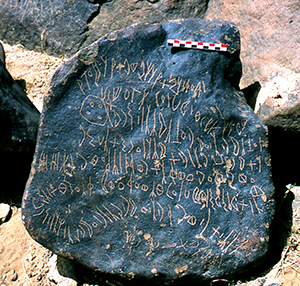We are very grateful to Alfie Abdul-Rahman from the Oxford e-Research Centre for offering this workshop. This is a fantastic opportunity to learn how to visualize your data from an expert with many years’ experience in the field.
What: Visualize Your Data for the Web using D3.js
Who: Alfie Abdul-Rahman
When: 09:30 – 17:00, Wednesday 31 May 2017 and Thursday 1 June 2017
Where: Conference Room, University of Oxford e-Research Centre, Keble Road, Oxford OX1 3QG (map)
Access: open to members of the University of Oxford
Eligibility: the workshop is aimed at people with little or no programming experience who are interested in learning and using D3.js for data visualization
Admission: free
Booking is required: to reserve a place on this two-day workshop, please email Pip Willcox (pip.willcox@bodleian.ox.ac.uk) including:
- your name
- your University email address
- your study level/job title/career stage
- your faculty or department affiliation

This two-day hands-on workshop will provide you with a brief introduction to creating simple web-based data visualizations. You do not need any previous coding experience: the workshop will take you through the process of creating a webpage, loading a data file, creating a simple visualization, and adding some basic interactivity into your visualization. The workshop will use HTML, CSS, and SVG, as well as teaching its core technology, D3.js. D3.js is an open source JavaScript library developed by Mike Bostocks.
The goal of the workshop is to provide you with an idea of what is required in creating a visualization for the web using D3.js. The hands-on experience of the workshop will be useful when you are exploring D3.js examples of code that are available on the web, and modifying them to fit your own data and purposes. By the end of the workshop you will be able to visualize your data ready for publishing online.
Equipment
Participants must bring a laptop with a Mac, Linux, or Windows operating system with WebStorm installed. There is a currently a free 30-day evaluation license available. If you are a student, you can apply for a free license via the WebStorm website (https://www.jetbrains.com/webstorm/) using your University email address.
Places at this workshop are limited and require a commitment to two full days’ attendance: please consider this when registering.
 Alfie Abdul-Rahman is a Research Associate at the Oxford e-Research Centre, University of Oxford. She has been involved with Imagery Lenses for Visualizing Text Corpora and Commonplace Cultures: Mining Shared Passages in the 18th Century using Sequence Alignment and Visual Analytics, developing web-based visualization tools for humanities scholars, such as Poem Viewer and ViTA: Visualization for Text Alignment.
Alfie Abdul-Rahman is a Research Associate at the Oxford e-Research Centre, University of Oxford. She has been involved with Imagery Lenses for Visualizing Text Corpora and Commonplace Cultures: Mining Shared Passages in the 18th Century using Sequence Alignment and Visual Analytics, developing web-based visualization tools for humanities scholars, such as Poem Viewer and ViTA: Visualization for Text Alignment.
She completed her PhD in Computer Science at Swansea University, focusing on the physically-based rendering and algebraic manipulation of volume models. Before joining Oxford, she worked as a Research Engineer in HP Labs Bristol on document engineering, and then as a software developer in London, working on multi-format publishing. Her research interests include information visualization, computer graphics, and human-computer interaction. She is currently working on the Quill project, a platform for the study of negotiated texts.

 What: Digitization for Research at the Bodleian: Creating Tools for Active Scholarship
What: Digitization for Research at the Bodleian: Creating Tools for Active Scholarship What: Fostering ‘the gift of confidence’ for women in the electronic music scene
What: Fostering ‘the gift of confidence’ for women in the electronic music scene
 What: A rock and a hard place: creating the Online Corpus of Inscriptions of Ancient North Arabia
What: A rock and a hard place: creating the Online Corpus of Inscriptions of Ancient North Arabia
 Alfie Abdul-Rahman is a Research Associate at the Oxford e-Research Centre, University of Oxford. She has been involved with Imagery Lenses for Visualizing Text Corpora and Commonplace Cultures: Mining Shared Passages in the 18th Century using Sequence Alignment and Visual Analytics, developing web-based visualization tools for humanities scholars, such as Poem Viewer and ViTA: Visualization for Text Alignment.
Alfie Abdul-Rahman is a Research Associate at the Oxford e-Research Centre, University of Oxford. She has been involved with Imagery Lenses for Visualizing Text Corpora and Commonplace Cultures: Mining Shared Passages in the 18th Century using Sequence Alignment and Visual Analytics, developing web-based visualization tools for humanities scholars, such as Poem Viewer and ViTA: Visualization for Text Alignment.